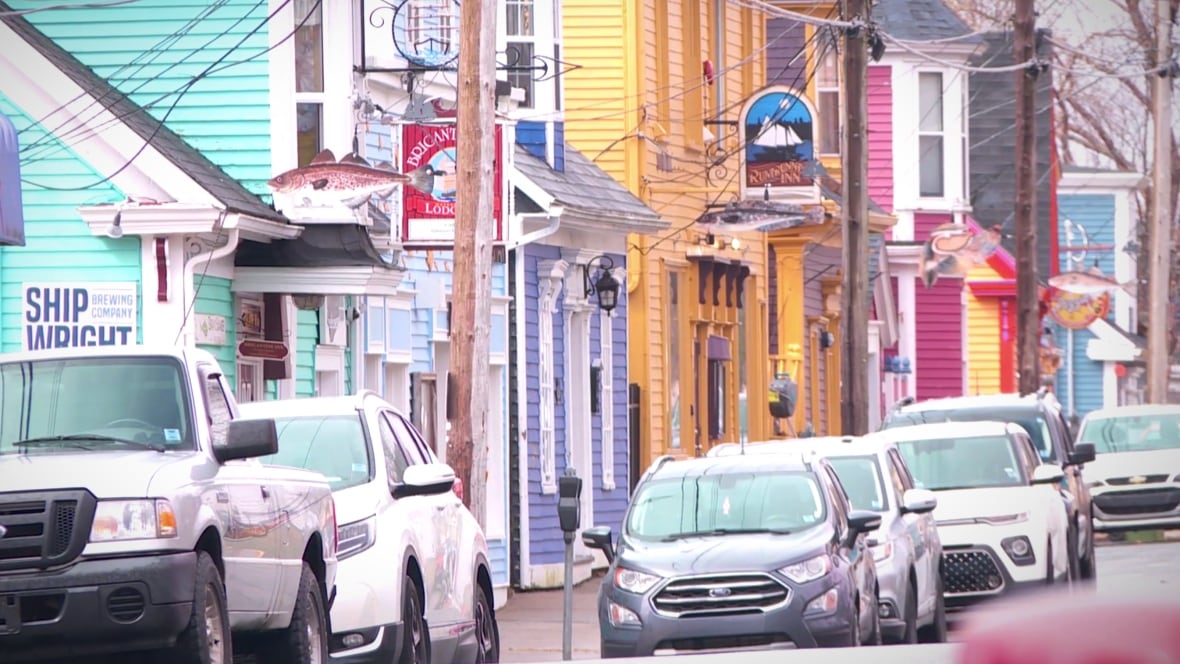The mayor of Lunenburg, N.S., is worried that an increasing number of large recreational vehicles and campers are choking the town’s streets and creating a potential safety hazard.
Jamie Myra told CBC Radio’s Information Morning Nova Scotia the town has seen a recent rise in so-called “boondocking,” when people camp for free on public land, parking their vehicles and setting up on the side of a street or outside retailers.
He said it’s been an issue for the last few years, but has become even more of a nuisance this summer with the vehicles clogging the South Shore town’s already narrow streets and making it harder for emergency services to do their jobs.
“As it is, with regular vehicles parked on the side of the road it becomes difficult sometimes for emergency vehicles to get through,” Myra said in an interview. “So if you add big camper vehicles or RVs … it really becomes a safety issue.”
The town recently addressed the issue in a Facebook post, reminding visitors that camping in public spaces within the town is prohibited under a municipal bylaw because it can cause congestion and “impair sightlines for motorists and emergency vehicles.”
The post encouraged camper and RV owners to continue to visit the town but asked that they not take up space on the streets or in local parking lots and instead overnight at nearby campgrounds.
 The view down a crowded Lunenburg street shown in this 2022 file photo. (Brett Ruskin/CBC)
The view down a crowded Lunenburg street shown in this 2022 file photo. (Brett Ruskin/CBC)
One factor driving the recent surge in boondocking is apps like iOverlander, which suggest locations for boondockers. For instance, a number of people have been camping outside the Lunenburg fire department, a popular spot on the app.
With the Nova Scotia government’s recent ban on camping, hiking and other activities in the woods, Myra said there is now concern the problem may be exacerbated as campers look for alternatives.
Myra said he thinks placing “friendly reminders” on the vehicles might encourage more co-operation from their owners. But if the situation worsens, he said the town will start issuing fines. Penalties could range from $100 to $10,000, or if they don’t pay, up to two months in jail, though he said warnings or $100 fines are the most likely outcome.
At the moment, the town is focused primarily on creating awareness.
“There’ll be better signage as you drive into town,” Myra said. “Like right now in a lot of those areas, we had one small little sign that if you weren’t looking for it, you probably didn’t see it.”